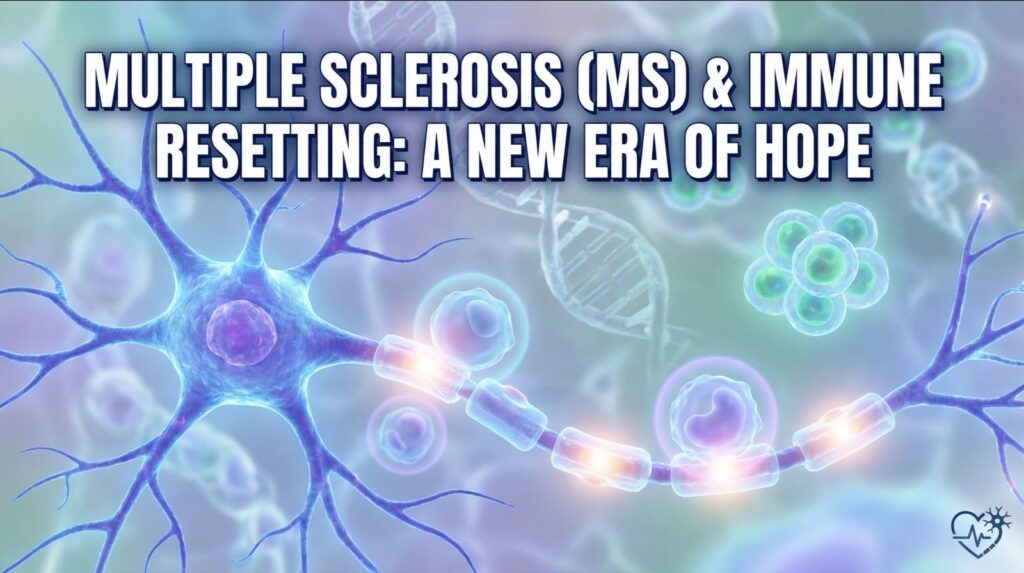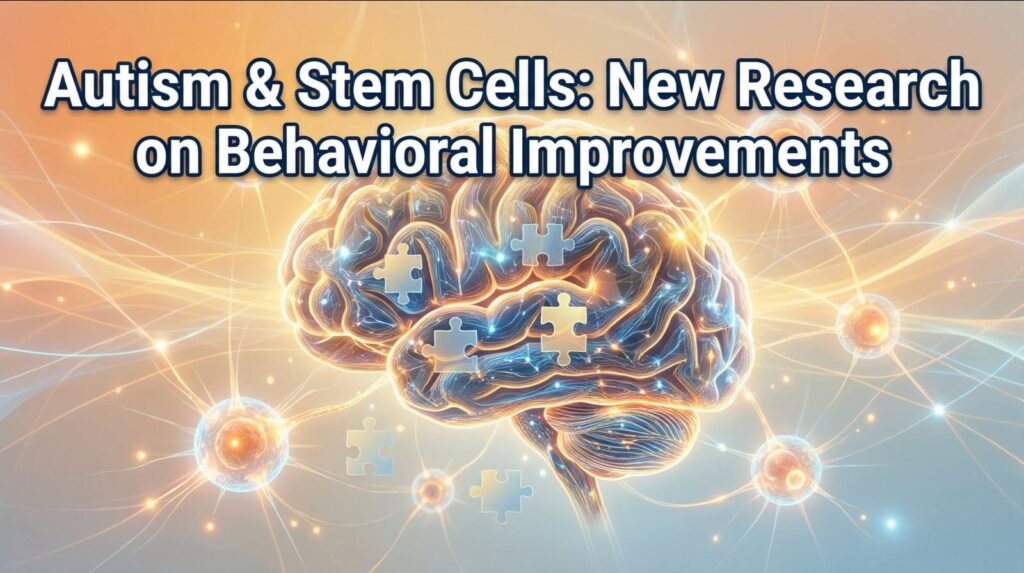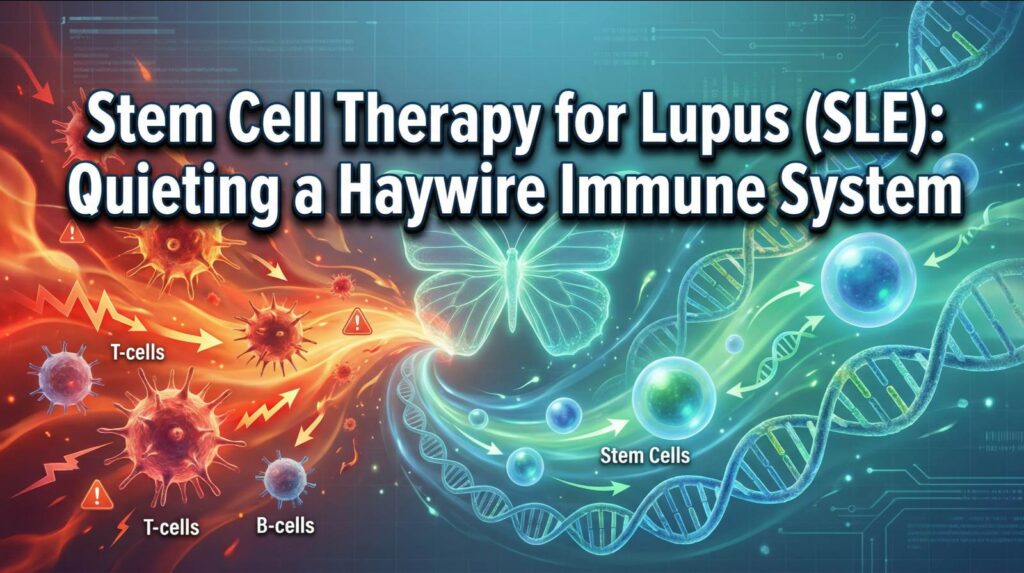Ever wished you could turn back the clock on aging? Well, buckle up, because we’re about to dive into the fascinating world of stem cell supplements – nature’s potential fountain of youth!
In a world obsessed with staying young, stem cell supplements are emerging as a tantalizing alternative to more invasive stem cell therapies. But can these little capsules really help us win the battle against Father Time? Let’s find out!
Understanding Stem Cells and Aging
Picture your body as a bustling city. Stem cells are like the master builders, constantly repairing and replacing worn-out structures. But as we age, these diligent workers start to slow down, leading to the telltale signs of aging we all know and dread.
The Stem Cell Decline
As we blow out more candles on our birthday cakes, our stem cells face a few challenges:
- Decreased production: Our body simply makes fewer stem cells
- Reduced function: The stem cells we do have become less effective
- Increased cellular damage: Environmental factors and lifestyle choices take their toll
This stem cell decline is like a domino effect, leading to:
- Slower tissue repair
- Weakened immune system
- Decreased energy levels
- Those pesky wrinkles and gray hairs
But here’s the kicker – what if we could give our stem cells a helping hand?
The Promise of Stem Cell Supplements
Enter stem cell supplements – the potential superhero in our anti-aging arsenal. These supplements aim to support and enhance our body’s natural stem cell function. It’s like giving our internal repair crew a much-needed energy drink!
How do they work?
Stem cell supplements typically contain ingredients that:
- Stimulate stem cell production
- Protect existing stem cells
- Enhance stem cell function
Think of it as fertilizer for your body’s regenerative garden. With the right nutrients, we might just be able to keep our cellular landscape lush and vibrant for longer.
Stem Cell Supplements: An Overview
Now that we’ve whet your appetite, let’s dig deeper into what these supplements are all about. Stem cell supplements are like a Swiss Army knife for your body – they come in many forms and claim to do many things.
Types of Stem Cell Supplements
Just as there’s more than one way to peel an apple, there’s more than one type of stem cell supplement:
- Plant-based supplements: These often contain extracts from plants like marine algae or apple stem cells.
- Animal-derived supplements: Some products use extracts from animal tissues, like deer antler velvet.
- Precursor supplements: These contain nutrients that support your body’s own stem cell production.
Each type has its own cheerleaders and skeptics in the scientific community. It’s like choosing between chocolate, vanilla, and strawberry ice cream – personal preference plays a role, but some flavors might have more nutritional value than others.
How They Work: The Science Behind the Supplements
Now, let’s get our geek on for a moment. Stem cell supplements work through various mechanisms:
- Stimulating stem cell production: Some ingredients may encourage your body to produce more stem cells.
- Protecting existing stem cells: Antioxidants in these supplements can shield your stem cells from damage.
- Enhancing stem cell function: Certain compounds might help your stem cells work more efficiently.
It’s like giving your internal repair crew better tools, stronger helmets, and a motivational pep talk all at once!
Supplements vs. Therapies: What’s the Difference?
You might be wondering, “Why not just go for stem cell therapy?” Well, here’s a quick comparison:
| Stem Cell Supplements | Stem Cell Therapies |
|---|---|
| Taken orally | Invasive procedures |
| Generally more affordable | Often expensive |
| Can be used daily | Usually one-time treatments |
| Effects may be subtle | Effects can be more dramatic |
| Less regulated | More strictly regulated |
Think of supplements as the gentle, persistent rain that nourishes your body over time, while therapies are more like a sudden flood – potentially powerful, but also riskier and more disruptive.
Potential Benefits of Stem Cell Supplements for Anti-Aging
Now, let’s get to the juicy part – what can these supplements actually do for us? While research is still ongoing, early studies and anecdotal evidence suggest some exciting possibilities.
Tissue Regeneration and Repair
Remember that city analogy? Stem cell supplements might help our body’s repair crew work faster and more efficiently. This could mean:
- Faster healing from injuries
- Improved skin elasticity (goodbye, wrinkles!)
- Better joint health (tennis, anyone?)
It’s like having a 24/7 maintenance team for your body, always ready to patch up any wear and tear.
Boosted Immune Function
Our immune system is like our body’s personal bodyguard. As we age, it can get a bit sleepy on the job. Stem cell supplements might help by:
- Increasing production of immune cells
- Enhancing the function of existing immune cells
- Reducing chronic inflammation
Imagine giving your immune system a strong cup of coffee and a new set of state-of-the-art security cameras!
Enhanced Cognitive Function
Who doesn’t want to stay sharp as a tack? Some studies suggest that stem cell supplements could:
- Improve memory and recall
- Enhance focus and concentration
- Support overall brain health
It’s like upgrading your brain’s operating system to the latest version!
Skin Rejuvenation
Let’s face it (pun intended), we all want to keep that youthful glow. Stem cell supplements might help by:
- Promoting collagen production
- Improving skin hydration
- Reducing the appearance of fine lines and wrinkles
Think of it as giving your skin a time machine – helping it remember its younger, bouncier days.
Increased Energy and Vitality
Feeling like your get-up-and-go has got-up-and-went? Stem cell supplements could potentially:
- Boost overall energy levels
- Improve physical stamina
- Enhance recovery after exercise
It’s like finding that fountain of youth, but in a convenient capsule form! While these benefits sound amazing, it’s important to remember that research is still ongoing. Stem cell supplements aren’t magic pills, but they do offer an exciting possibility in our quest for healthier, more vibrant aging.
Key Ingredients in Effective Stem Cell Supplements
Now that we’ve tantalized you with the potential benefits, let’s peek behind the curtain and see what makes these supplements tick. It’s like looking at the recipe for a gourmet meal – each ingredient plays a crucial role in the final dish.
Stem Cell Activators and Precursors
These are the star players in our anti-aging team. They work to wake up our sleepy stem cells or provide the building blocks for new ones.
- L-Carnosine: This amino acid is like a personal trainer for your stem cells, helping them stay active and productive.
- Blueberry Extract: Rich in antioxidants, it’s like a shield protecting your stem cells from damage.
- Spirulina: This blue-green algae is packed with nutrients that support stem cell function. Think of it as superfood for your cells!
Antioxidants and Anti-Inflammatory Compounds
These ingredients are the bodyguards of the supplement world, protecting your cells from harm.
- Resveratrol: Found in red wine and berries, it’s like a suit of armor for your cells.
- Curcumin: The active compound in turmeric, it’s nature’s anti-inflammatory superhero.
- Green Tea Extract: Packed with catechins, it’s like giving your cells a refreshing, protective bath.
Growth Factors and Cytokines
These are the communicators of the cellular world, helping to coordinate repair and regeneration.
- Colostrum: Rich in growth factors, it’s like a pep talk for your cells.
- Ginseng: This adaptogenic herb contains compounds that can stimulate stem cell activity. It’s like a motivational speaker for your cellular workforce.
Supportive Nutrients for Stem Cell Function
These are the support staff, ensuring your stem cells have everything they need to thrive.
- Vitamin D: Essential for stem cell differentiation, it’s like a career counselor for your cells.
- Zinc: Crucial for DNA synthesis, think of it as the building blocks for your cellular construction crew.
- Omega-3 Fatty Acids: These support overall cellular health. They’re like the oil that keeps your cellular machinery running smoothly.
Here’s a quick reference table of these key ingredients:
| Ingredient | Function | Food Sources |
|---|---|---|
| L-Carnosine | Stem cell activation | Beef, fish |
| Blueberry Extract | Antioxidant protection | Blueberries |
| Spirulina | Nutrient support | Algae supplements |
| Resveratrol | Cellular protection | Red wine, grapes |
| Curcumin | Anti-inflammatory | Turmeric |
| Green Tea Extract | Antioxidant | Green tea |
| Colostrum | Growth factors | Bovine colostrum |
| Ginseng | Stem cell stimulation | Ginseng root |
| Vitamin D | Stem cell differentiation | Sunlight, fatty fish |
| Zinc | DNA synthesis | Oysters, beef, pumpkin seeds |
| Omega-3s | Cellular health | Fatty fish, flaxseeds |
Remember, not all stem cell supplements are created equal. The most effective ones will contain a balanced blend of these ingredients, working in harmony to support your body’s stem cell function. It’s like assembling a dream team for your cellular health!
Choosing the Right Stem Cell Supplement
Alright, so you’re sold on the idea of stem cell supplements. But with so many options out there, how do you choose the right one? It’s like being a kid in a candy store – everything looks tempting, but you want to make sure you’re getting the good stuff.
Factors to Consider
When shopping for stem cell supplements, keep these points in mind:
- Ingredient quality: Look for supplements that use high-quality, pure ingredients. It’s like choosing organic produce over conventionally grown – you want the best for your body.
- Dosage: Check if the supplement contains effective doses of key ingredients. A pinch of cinnamon might make your coffee taste good, but it won’t have much health impact.
- Form: Supplements come in various forms – capsules, powders, liquids. Choose one that fits your lifestyle. If you can’t swallow pills, a powder might be your best bet.
- Brand reputation: Opt for reputable brands with a track record of quality. It’s like choosing a restaurant – you want one with good reviews and a clean kitchen!
- Price: While you shouldn’t skimp on quality, the most expensive option isn’t always the best. Look for value for money.
- Allergens: Check the label for any potential allergens. You don’t want your anti-aging efforts derailed by an allergic reaction!
Importance of Quality and Manufacturing Standards
When it comes to supplements, quality is king. Here’s what to look for:
- GMP certification: This ensures the product is consistently produced and controlled according to quality standards.
- Third-party testing: Independent lab tests can verify the product’s purity and potency.
- Transparency: Look for brands that are open about their sourcing and manufacturing processes.
It’s like buying a car – you want to know it’s been properly built and safety-tested before you take it for a spin.
Dosage and Administration Guidelines
Even the best supplement won’t work if you’re not taking it correctly. Here are some general tips:
- Follow the label: The recommended dosage is there for a reason.
- Consistency is key: Most supplements work best when taken regularly.
- Timing matters: Some supplements are best taken with food, others on an empty stomach.
- Start slow: If you’re new to stem cell supplements, start with a lower dose and gradually increase.
Remember, it’s not about how much you take, but how well your body can use it. It’s like watering a plant – too little won’t help, but too much can drown it!
Lifestyle Factors to Enhance Stem Cell Supplement Efficacy
Taking stem cell supplements is great, but it’s not a magic bullet. To really maximize their benefits, you need to create an environment where your stem cells can thrive. Think of it like planting a garden – the best seeds won’t grow in poor soil.
Nutrition and Diet
You are what you eat, and so are your stem cells! A balanced diet rich in these nutrients can support stem cell function:
- Antioxidants: Found in colorful fruits and vegetables, they protect your cells from damage.
- Omega-3 fatty acids: These healthy fats, found in fish and flaxseeds, support cellular health.
- Protein: The building blocks of cells, found in lean meats, beans, and nuts.
Here’s a sample meal plan to get you started:
| Meal | Foods | Stem Cell Benefits |
|---|---|---|
| Breakfast | Greek yogurt with berries and nuts | Protein, antioxidants |
| Lunch | Grilled salmon salad with leafy greens | Omega-3s, antioxidants |
| Dinner | Lean chicken breast with sweet potato and broccoli | Protein, vitamins |
| Snack | Apple slices with almond butter | Antioxidants, healthy fats |
Remember, variety is the spice of life – and the key to a nutrient-rich diet!
Exercise and Physical Activity
Exercise isn’t just about looking good in your jeans – it’s also great for your stem cells! Regular physical activity can:
- Stimulate stem cell production
- Improve blood flow, delivering nutrients to your cells
- Reduce inflammation
Aim for a mix of cardio and strength training. It’s like cross-training for your stem cells!
Stress Management
Chronic stress is like kryptonite for your stem cells. To keep stress in check:
- Practice mindfulness or meditation
- Get enough sleep (aim for 7-9 hours)
- Engage in hobbies you enjoy
Think of stress management as a spa day for your stem cells – it helps them relax and function better.
Sleep Optimization
Quality sleep is when your body does most of its repair work. To improve your sleep:
- Stick to a consistent sleep schedule
- Create a relaxing bedtime routine
- Keep your bedroom cool and dark
Good sleep is like hitting the reset button for your stem cells each night.By combining these lifestyle factors with stem cell supplements, you’re creating an optimal environment for cellular health. It’s like giving your stem cells a five-star resort to work in!
Potential Risks and Side Effects
While stem cell supplements offer exciting possibilities, it’s important to approach them with eyes wide open. Like any supplement, they’re not without potential risks. It’s like embarking on a new adventure – thrilling, but you still need to pack your first aid kit!
Common Side Effects of Stem Cell Supplements
Most people tolerate stem cell supplements well, but some may experience:
- Digestive issues: Nausea, bloating, or diarrhea
- Headaches: Especially when starting a new supplement
- Allergic reactions: Particularly if you’re sensitive to any ingredients
These side effects are usually mild and often resolve as your body adjusts. It’s like breaking in a new pair of shoes – a bit uncomfortable at first, but it gets better!
Contraindications and Interactions with Medications
Stem cell supplements may not play nice with certain medications or health conditions. Be cautious if you:
- Are pregnant or breastfeeding
- Have autoimmune disorders
- Are taking blood thinners or immunosuppressants
It’s like mixing different cleaning products – sometimes they work well together, sometimes they don’t. Always check with your doctor first!
Importance of Consulting with a Healthcare Professional
Before starting any new supplement regimen, it’s crucial to chat with your healthcare provider. They can:
- Assess if stem cell supplements are right for you
- Check for potential interactions with your current medications
- Help you determine the right dosage
Think of your doctor as your personal health detective – they can help you solve the mystery of what’s best for your body.
The Future of Stem Cell Supplements in Anti-Aging
As we peer into our crystal ball, the future of stem cell supplements looks bright and exciting. It’s like watching the dawn of a new era in anti-aging science!
Conclusion
In our relentless quest to defy aging, stem cell supplements emerge as a promising, non-invasive alternative to traditional stem cell therapies.
These supplements aim to bolster our body’s natural regenerative processes by stimulating stem cell production, protecting existing stem cells, and enhancing their function.
By understanding the science behind stem cells and the various types of supplements available, we can make informed choices that may help us maintain vitality, boost immune function, and enhance cognitive and physical health as we age.



